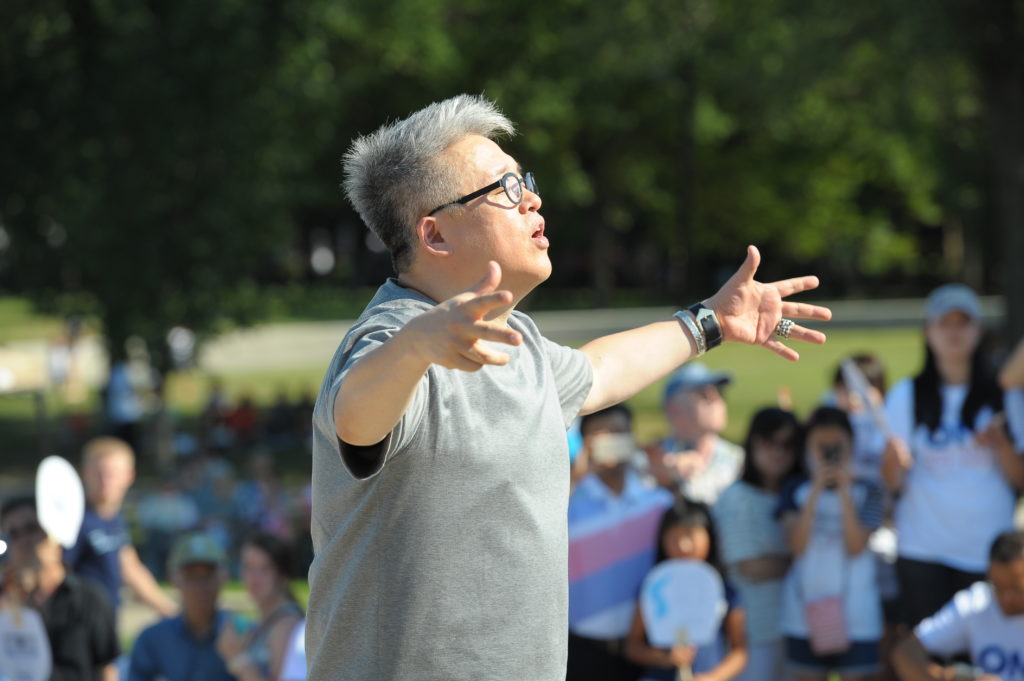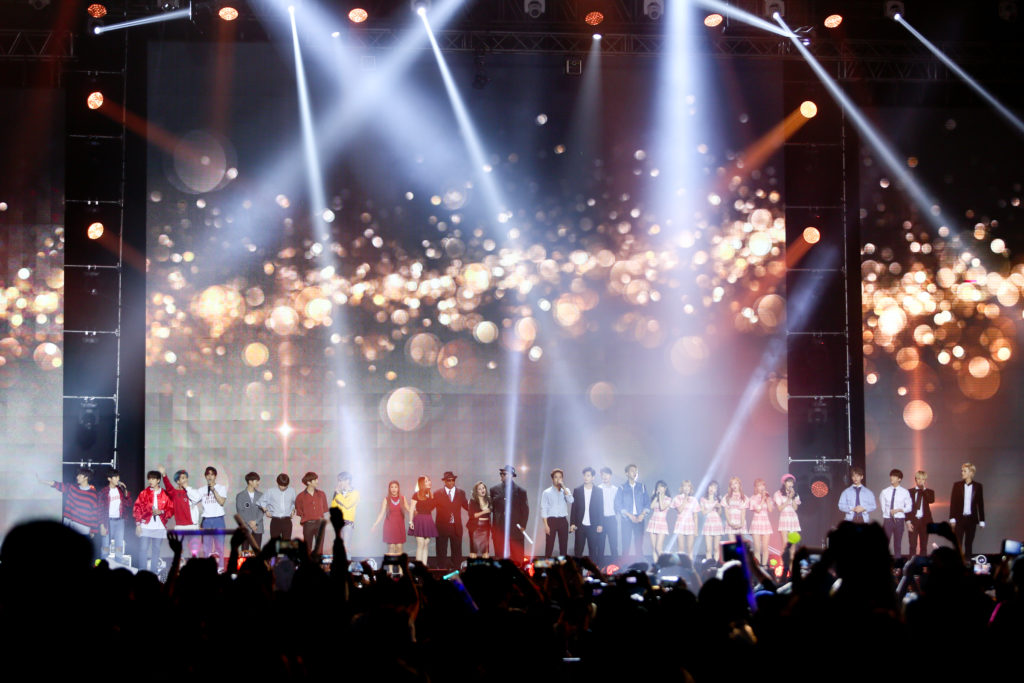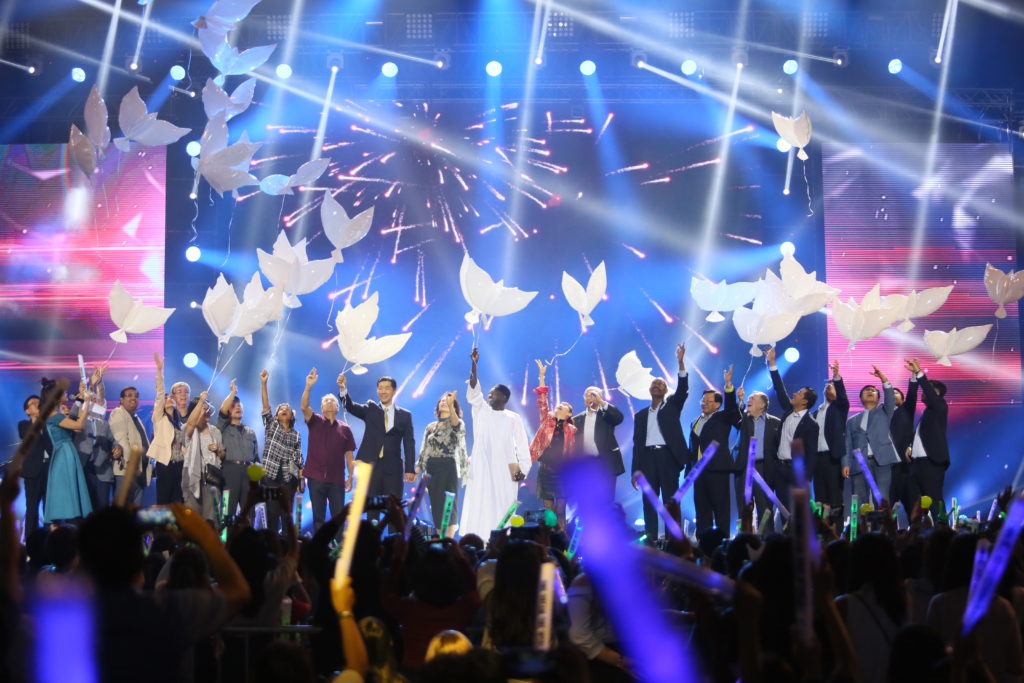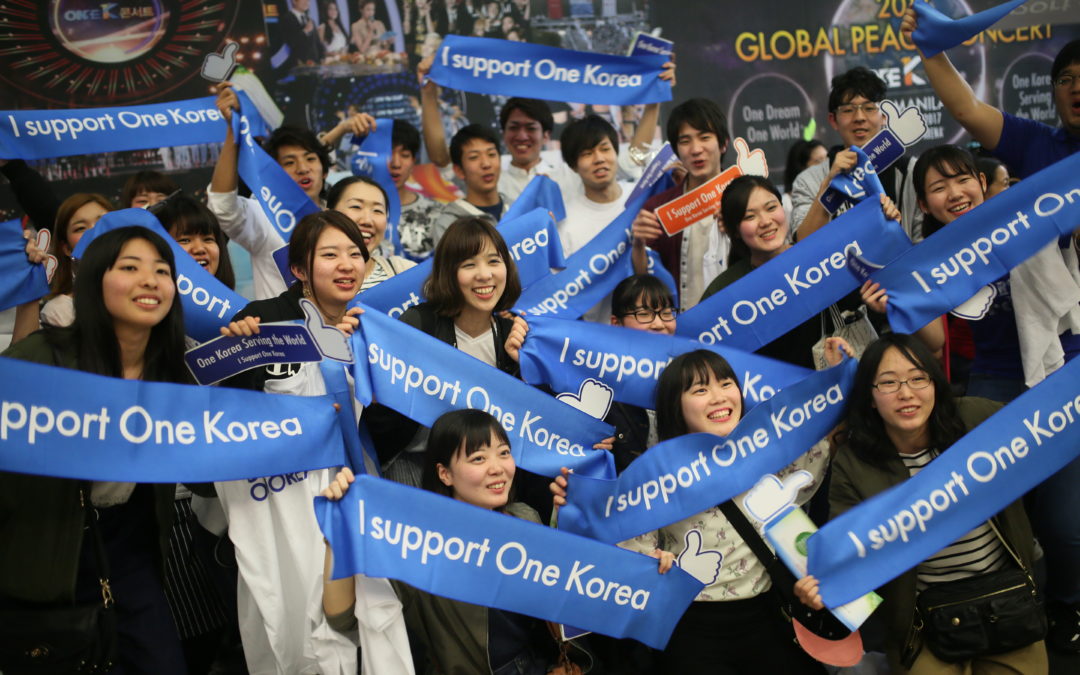In 2015, an unprecedented project was launched, using Korean popular culture to engage younger generations around the world on the issue of Korean reunification – the New Era Unification Campaign.
Kim Hyung-suk, a well-known Korean composer, took up the task along with lyricist Kim Eana to create a song that would capture the dream of One Korea for the world.

Kim Hyung-suk at the One Dream One Korea concert at the Lincoln Memorial in Washington, DC.
“I want to create a song that can reach all generations. I believe everyone wants unification.”
K-pop, shorthand for Korean popular culture, includes music, dance, syndicated drama series and movies. Fan bases have sprung up around the world, even in unexpected regions like the Middle East and South America. This global phenomenon is also referred to as Hallyu in Korean or K-wave in English.
The music video, One Dream, One Korea, rode the K-wave, reaching the fans of K-pop superstars like EXO, EXID, Girls Day, AOA and Red Velvet, Na Yoon Kwon, and Yangpa. The song also opened up a new genre of songs dedicated to the issue of Korean reunification. In these efforts, the K-wave had the effect of making a powerful, positive difference for global peace.
Three years later, the impact of the project continues to be felt.
The song was featured at the close of the first Inter-Korea summit between Kim Jong-un and Moon Jae-In in April 2018.

Famous K-pop stars at the One K Concert in Manila, Philippines.
K-pop stars who joined the music video and the Global Peace Concerts are also becoming ambassadors of cultural exchange as the two Koreas begin to reopen relations. With such developments, the prospect of unification comes closer to becoming a reality.
BTS, recently ranked the #1 boy band in the world, performed at the One K Concert in 2015. They also recently received recognition as ambassadors of Korean tradition and language following their UN speech for youth empowerment.
Red Velvet, one of the girl bands featured in the One Dream One Korea music video, visited Pyongyang in the spring of 2018, meeting Kim Jong-un face-to-face and singing in front of their North Korean brethren. Only three years earlier, during the closing credits of the music video, Wendy, one of the band’s leading members, expressed her reason for supporting the song campaign.
“I am glad to lend my voice to this song, One Dream One Korea. I hope my contribution can lead to fulling our dream of One Korea.”
Groups like Red Velvet have now opened the way for others to fulfill the once-distant dream of singing in Pyongyang. In the 2015, an AOA member, Cho, remarked that, “I hope someday I can spend time with my friends from the North.”

Global leaders that advocate peace holding dove balloons at the One K Concert.
The immediate effect of song campaigns and peace concerts may have been difficult to fathom at the time, but three years later, the notes of the first Unification Song continue to resound in the journey towards reunification.
Leading up to the 2019 March First Movement 100th year commemoration, a new theme song campaign and plans for a Global Peace Concert are underway, ready to give more traction to the issue of reunification.
The K-wave is taking on a new dimension of not just popular culture with catchy tunes, and cool dance moves, but a culture that seeks peace and a better world for all people and all generations.

